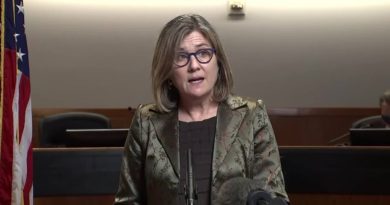In Nick Cordero’s Death, a Reminder of Covid-19’s Unknowns
Mr. Cordero died on Sunday, more than three months after he was stricken with the coronavirus.
Doctors have been continually surprised by the progression of Covid-19 in different patients, but they have painted a general trajectory: Those who develop symptoms do so within two weeks of infection; patients who are saddled with severe disease tend to rapidly decline about seven days into their illness. Mild cases resolve in about two weeks time; more serious ones can stretch out to three to six weeks, with death — when it happens — occurring shortly thereafter.
But these numbers are built from averages, medians and estimates. Many people plagued by the coronavirus have debilitating symptoms for months, even after being discharged from the hospital. And health workers and researchers have an incomplete picture of the factors that can lead a patient onto a path toward either a speedy recovery, or fast deterioration and death.
The most severe symptoms of Covid-19 are thought to be the result of an overactive immune response, kick-started to wage war with the virus, that ultimately overwhelms the body. Damage wrought by this friendly fire can sometimes incite dangerous bouts of blood clotting — a sequence of events that was especially poorly understood at the start of the outbreak, said Dr. Phyllis Tien, a physician and infectious disease expert at the University of California, San Francisco.
“We know so much more today than we did three months ago,” Dr. Tien said. “But every day, something new happens.”
The announcement of Mr. Cordero’s death arrived just a day after President Trump falsely claimed that 99 percent of coronavirus cases are “totally harmless.” Dr. Bell called those comments “an insult to the people who have died, and contributed to our knowledge of this.” Even for those who have survived, their suffering can be immense and prolonged.
Researchers do not yet fully understand who is at greatest risk of serious disease. Advanced age and a shortlist of medical conditions do seem to play a role, Dr. Essien, the health equity researcher, said. But social factors play enormous roles as well — and those who are marginalized by race, ethnicity, socioeconomic status and more are known to be especially vulnerable to the virus. Latino and African-American residents of the United States are three times as likely to become infected by the coronavirus as white Americans, and are nearly twice as likely to die from the virus.
The list of factors that can predispose a person to severe Covid-19 will probably shift in the months and years to come, Dr. Essien said. And even those who continue to be in a low-risk category should not assume they are in a no-risk category.
Doctors and nurses are still learning, too, Dr. Tien said. But what’s clear so far is this: “Young people are definitely not immune to this disease.”



